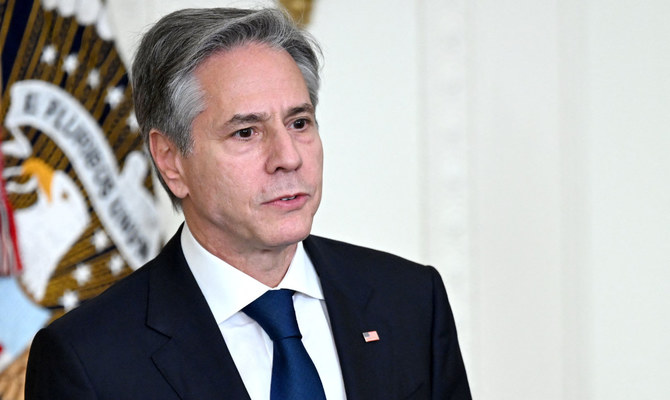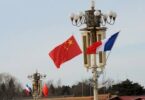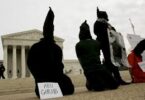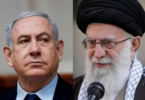Dr. Abdel Aziz Aluwaisheg
The visit of US Secretary of State Antony Blinken to Saudi Arabia last week has dispelled misconceptions about the state of the US-Saudi and US-GCC partnerships. There had been speculation about a rift between the two sides following March’s Saudi-Iranian deal, through Chinese mediation, to resume diplomatic relations.
Readmitting Syria to the Arab League was another source of tension between the US and its Gulf partners; the US was clearly unhappy with seeing Bashar Assad in Jeddah last month to attend the Arab League Summit. These developments came on top of disagreements over OPEC’s policies, especially its coordination with Russia over production levels, and what was seen as China’s growing influence in the region.
These issues were enough for pundits outside the region to assume there was irreparable damage to the GCC-US relationship, especially Washington’s ties with Saudi Arabia. Similarly, pundits in the region saw the US as ambivalent about its continued presence here, despite its protestations otherwise. Memories have faded of President Joe Biden’s visit last July and his assertions about Washington’s “enduring commitment” to Gulf security. His speech in Palestine was also forgotten, during which he reversed his predecessor’s policies on Israeli settlements and called for an independent and viable state for the Palestinians.
Although the senior leaderships in both camps knew better, those public perceptions predicted a difficult if not failed visit before it even started. However, the results of Blinken’s three-day visit – his first solo visit to the region since becoming secretary of state more than two years ago – have disappointed the pundits in both camps. It has reassured US partners in the Gulf about America’s commitment to regional security and brought relief to Washington that things here are not what they looked like from D.C., more than 10,000 km away. Following Blinken’s meeting with Crown Prince Mohammed bin Salman on June 6, the US said the two affirmed their “shared commitment” to advancing stability, security and prosperity across the Middle East and beyond, including through their ongoing partnership in diplomatic negotiations to stop the fighting in Sudan and working toward a comprehensive political agreement to achieve peace, prosperity and security. They also discussed deepening economic cooperation, something in which the US has been lagging compared to China, its chief economic rival.
On the following day, there was a meeting with GCC foreign ministers in Riyadh, under the framework of the GCC-US Strategic Partnership announced in 2015. They agreed that the partnership is there to stay and thrive, even if there are issues on which they may disagree. They discussed regional security and important elements of their “strategic, ambitious and growing partnership,” according to a public statement issued late on June 7. There was also a serious discussion of issues on which they had somewhat differing views lately, including Iran, Syria and Ukraine. Starting with what they agreed on, the US reaffirmed its commitment to the security of the region, recognizing its vital role in the global economy and international trade. The two partners would work together for peace, security, stability, integration and economic prosperity in the Middle East, including through infrastructure projects to promote regional integration and interconnectivity, such as connecting the GCC electric grid with those of its neighbors, starting with Iraq, where the project was finally launched on June 8.
On defense and security cooperation, they voiced their shared determination to contribute to regional security and stability and the upholding of navigational rights and freedoms, and of collective efforts to address threats to the security of vessels traveling through the region’s waterways, in a veiled reference to Iran. For that purpose, they reviewed their defense cooperation through the frequent joint military exercises and their close partnership through the Combined Maritime Forces framework. They further discussed the outcomes of four GCC-US working group meetings from earlier this year – on integrated air and missile defense, maritime security, counterterrorism and Iran – and explored the possibility of reconvening them later this year. They also decided to convene a meeting of their joint cybersecurity team later this year and explored the possibility of convening other working groups previously set up to deal with the military and security aspects of their partnership. On controversial issues such as Iran, where disagreement preceded Blinken’s visit, the ministers stressed the need for diplomacy and de-escalation. The US “welcomed” the decision by Saudi Arabia and Iran to resume diplomatic relations, but stressed the importance of what was included in the Saudi-Iran-China statement of March 10 about adherence to international law, including the UN Charter, which has been the core issue behind GCC-Iran and US-Iran differences in the past. While on Iran, they announced their commitment to freedom of navigation and maritime security and countering aggressive and illegal actions at sea or elsewhere that might threaten shipping lanes, international trade and oil installations in the GCC states. On the nuclear issue, they did not dwell on the Joint Comprehensive Plan of Action, as it happened in the past, but reaffirmed their general support for the Treaty on the Non-Proliferation of Nuclear Weapons and an enhanced role for the International Atomic Energy Agency.
On Syria, another divisive issue in this partnership, they nevertheless welcomed Arab efforts to resolve the crisis in a step-by-step manner, consistent with UN Security Council Resolution 2254, as agreed during the May 1 Amman consultative meeting of the Arab Ministerial Contact Group on Syria. Reference to the resolution should reassure all that the GCC and the US remain committed to a political solution through the UN’s mediation process, which has been lagging behind in recent months. On the Palestine question, the two sides underscored their commitment to a just, lasting and comprehensive peace in accordance with the two-state solution, along the 1967 borders, with mutually agreed swaps consistent with internationally recognized parameters, and the Arab Peace Initiative. They also opposed unilateral moves regarding settlements and Jerusalem, thus again reversing the Trump administration’s support for Israel’s illegal moves.
On the Ukraine war, on which the two sides did not completely agree on all of its details, they nevertheless agreed on the importance of respecting the principles of sovereignty and international law, including the UN Charter, and the obligation to refrain from threats or the use of force against the territorial integrity or political independence of any state. They also called for intensified efforts to find a peaceful solution and deal more effectively with the humanitarian fallout, including extending the UN Black Sea Grain Initiative to facilitate the export of grain and other food supplies from Ukraine. Sudan has been a bright spot in Saudi-US cooperation in recent weeks and the ministers supported their diplomatic efforts there and called on the Sudanese Armed Forces and the Rapid Support Forces to silence their guns.
In all, Blinken’s visit has reenergized the Saudi-US and GCC-US partnerships and dealt with disagreements in an effective and constructive manner. After removing the misunderstandings that were magnified by the media, continued engagement at the ministerial and technical levels is now needed to move forward and take this partnership to higher levels, including in the economic sphere, where win-win opportunities are abundant. Instead of bemoaning China’s growing presence in the region, the US should increase its own.
Arab News







